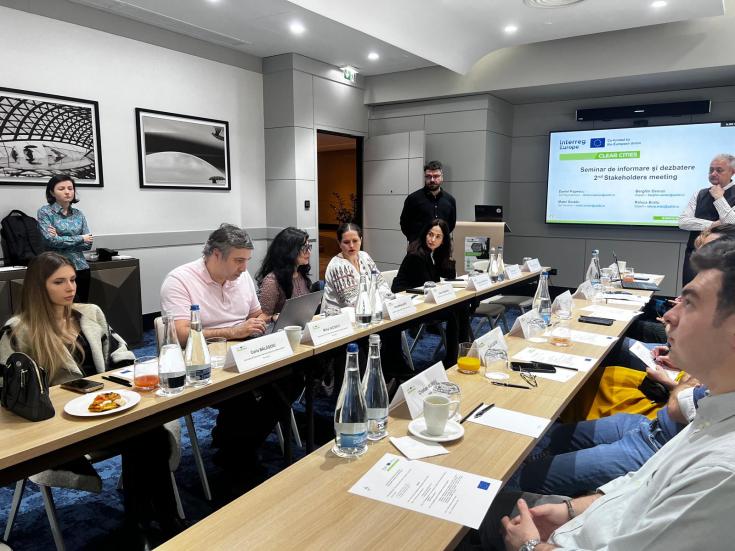Bucharest Hosts 2nd Stakeholders meeting
On March 26, 2025, the Bucharest-Ilfov Regional Development Agency (BIRDA) hosted the second stakeholders meeting of the European project CLEAR CITIES, which promotes the development and implementation of innovative, zero-carbon urban waste management policies. The event convened a wide range of local actors committed to advancing sustainable, safe, and resilient cities by addressing the pressing challenges of urban waste.
The meeting was officially opened by representatives from BIRDA’s Development and Programme Assistance Department, who provided an overview of the project’s objectives, the progress made so far, and BIRDA’s active role as a partner in this important European initiative. The opening session also explored current European and national regulations on sustainable waste management and encouraged dialogue around stakeholders’ views, expectations, and concerns.
Among the highlights of the event was the presentation of the POLYMEER project, an innovative initiative focused on the valorization of brewery spent grain—a valuable yet underutilized resource. POLYMEER explores how this organic by-product can be transformed into high-performance, sustainable bioplastics, demonstrating the potential of circular economy approaches in industrial waste streams.
The seminar continued with a dynamic debate session showcasing inspiring local initiatives. Two keynote speakers enriched the discussion:
-
Irina Breniuc, from the Association for Sustainable Consumption, presented the community-based initiatives Compost Academy, Trifoi Fest, and Cotro Share. These projects promote resource valorization and waste prevention, highlighting the crucial role of citizen engagement in the transition toward responsible consumption and environmental stewardship.
-
Cristian Andrei Murgu, Assistant PhD Candidate at the Bucharest University of Agronomic Sciences and Veterinary Medicine, offered insights into the academic and practical dimensions of circular economy development. His contribution emphasized opportunities to enhance local waste management strategies through education, research, and innovation.
The session concluded with a summary of the main ideas discussed and a call to strengthen collaboration between public authorities, academia, civil society, and the private sector. Participants had the opportunity to exchange ideas and explore future partnerships aimed at supporting a more sustainable urban environment.
This second stakeholders meeting reaffirmed that effective responses to environmental challenges are rooted in cooperation, knowledge-sharing, and inclusive participation. The event not only provided a valuable platform for dialogue, but also reinforced the Bucharest-Ilfov region’s commitment to building cleaner, more sustainable cities for all.

